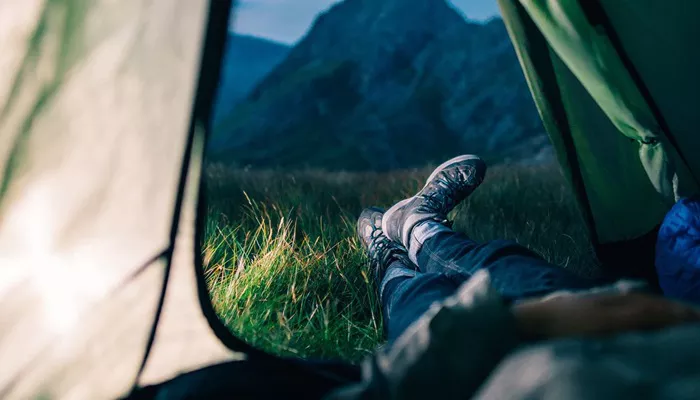Wild camping, also known as free camping, refers to camping outside of designated campgrounds or official camping areas. While it is a popular activity in many parts of the world, it remains illegal in most parts of the UK. This article explores the reasons behind the prohibition of wild camping in the UK, providing a detailed analysis of the legal, environmental, and social factors involved.
Understanding Wild Camping
Definition of Wild Camping
Wild camping involves setting up a tent in a natural area without official permission. Unlike traditional camping, which occurs in designated campsites with facilities and permissions, wild camping takes place in remote or undeveloped locations. It is often done for the purpose of enjoying nature and solitude.
Historical Context
Historically, wild camping in the UK was more common and less regulated. However, as the popularity of outdoor activities grew, so did concerns about the impact of unregulated camping on natural environments and communities. This led to the introduction of various laws and regulations aimed at preserving the natural landscape and ensuring public safety.
Legal Framework for Camping in the UK
National Parks and Areas of Outstanding Natural Beauty
In England and Wales, wild camping is generally illegal in National Parks and Areas of Outstanding Natural Beauty (AONBs). The Countryside and Rights of Way Act 2000 (CROW Act) and the National Parks and Access to the Countryside Act 1949 provide the legal framework for these restrictions. These laws aim to protect these special areas from the potential negative effects of unregulated camping.
Scotland’s Approach
Scotland has a different approach to wild camping due to the Land Reform (Scotland) Act 2003. This legislation allows for more freedom in accessing land, including the right to camp in most places, as long as it is done responsibly and does not cause damage. However, this freedom is subject to conditions, and there are still restrictions in place to prevent issues such as littering and disturbance.
Northern Ireland and Wales
In Northern Ireland and Wales, the regulations regarding wild camping are similar to those in England. Wild camping is generally prohibited unless specific permissions are granted. Local authorities and landowners have the discretion to enforce these regulations and manage camping activities.
Environmental Concerns
Impact on Natural Landscapes
Wild camping can have a significant impact on natural landscapes. The presence of tents, fires, and other camping equipment can lead to soil erosion, damage to vegetation, and disruption of wildlife habitats. Unregulated camping often results in areas being overused, leading to long-term environmental damage.
Litter and Pollution
One of the primary environmental concerns associated with wild camping is littering. Campers may leave behind waste, including food scraps, plastic bottles, and other debris. This litter not only harms the environment but also affects wildlife, which may ingest or become entangled in discarded materials.
Fire Hazards
Fires are a common feature of camping, but uncontrolled or poorly managed fires can pose significant risks to natural areas. In many parts of the UK, wildfires can spread rapidly, especially in dry conditions, leading to extensive damage to forests and grasslands.
Social and Community Impact
Effects on Local Communities
Wild camping can affect local communities in various ways. Increased foot traffic in rural areas can lead to disturbances for residents and damage to property. Additionally, some communities may experience issues related to privacy and security due to unregulated camping.
Impact on Landowners
Landowners often face challenges related to wild camping on their properties. Issues such as property damage, littering, and unauthorized access can create conflicts between landowners and campers. The legal restrictions on wild camping are partly intended to address these concerns and protect the rights of property owners.
Safety Concerns
Wild camping can also present safety concerns. Campers may find themselves in hazardous situations due to the lack of facilities, such as sanitation and emergency services. The absence of official oversight increases the risk of accidents and health issues.
SEE ALSO: Is It Safe to Go Camping Alone?
The Role of Designated Camping Areas
Benefits of Designated Campsites
Designated campsites offer several benefits over wild camping. They provide essential facilities such as toilets, waste disposal, and safe drinking water. These amenities help minimize environmental impact and enhance the overall camping experience.
Regulation and Management
Designated campsites are managed and regulated by various organizations, including national park authorities, local councils, and private landowners. This management ensures that camping activities are conducted in a controlled manner, reducing the potential for negative impacts on the environment and local communities.
Encouraging Responsible Camping
By providing designated camping areas, authorities encourage responsible camping practices. Campers are more likely to follow guidelines and respect the environment when camping in regulated areas. This approach helps balance the enjoyment of outdoor activities with the need to protect natural resources.
Conclusion
The prohibition of wild camping in most parts of the UK is driven by a combination of legal, environmental, and social factors. While the UK does allow some freedom for wild camping, particularly in Scotland, regulations are in place to ensure that camping activities do not harm the environment or disrupt local communities. By understanding the reasons behind these regulations, campers can appreciate the importance of responsible outdoor recreation and the need to protect the natural landscapes for future generations.

